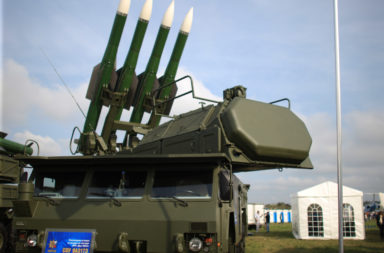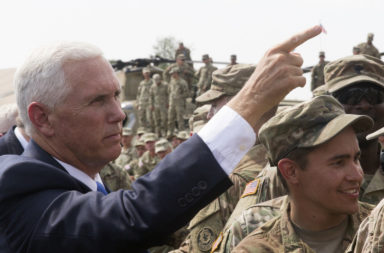With a series of statements over the past week, President-elect Trump shined some light on how his administration will approach these global rivals. However, the manner in which his attempt to display a position of strength will be received in the East will be a matter of great concern to those increasingly troubled by the fast-approaching Trump Presidency.
- Russian sanctions to persist but for how long?
- ‘One China’ policy, South China Sea bring potential for conflict
- Alleged currency manipulation at the centre of US-Sino tensions
During an interview with the Wall Street Journal, Donald Trump responded to questions regarding the US’ main rivals, Russia and China. Given the continuing furore surrounding his upcoming inauguration and the many controversies surrounding Trump, observers hoping for calming words on important issues were left disappointed.
The sanctions that the departing Obama administration placed on Russia in the wake of the election hacking scandal will stay, for “at least for a period of time,” “If you get along and if Russia is really helping us, why would anybody have sanctions if somebody’s doing some really great things?”
Trump’s continued hopes that a positive relationship with the Kremlin can be forged in the opening days of his Presidency will be celebrated in Moscow. President Putin’s decision to delay any reaction to Obama’s sanctions, a sign that a detente has been established until Trump comes to power. A potential meeting between the two leaders was also mooted.
However, Trump’s word could also be taken as a boon for the US intelligence community. Having continually denied reports of hacking surrounding the election, as well as ridiculing the CIA and FBI, the continuation of sanctions could be seen as a nod to the veracity of the hacking claims.
This comes amid further condemnation from outgoing CIA director John Brennan: “I think Mr Trump has to understand that absolving Russia of various actions that it’s taken in the past number of years is a road that he, I think, needs to be very, very careful about moving down”.
Trump’s ‘One China’ Bargaining Chip
“Everything is under negotiation with China”. These choice words of Trump will not be taken lightly by Xi Jinping’s government, who are still furious at the phone call between the President-elect and the Taiwanese President Tsai Ing-wen. Certainly, the likelihood of a cordial relationship between the two nations is dwindling.
Indeed, Trump is seemingly set on a more aggressive and less subservient relationship with the Eastern powerhouse. The Trump administration may look to draw concessions from the Chinese on a number of issues.
The increasing tensions surrounding disputed territory in the South China Sea will figure greatly in Trump’s plans. As President he could choose to increase the number of “freedom of navigation” operations in the area. He could also apply economic sanctions to those involved in the creation of artificial islands – a suggestion of his Republican rival Marco Rubio.
The final and most aggressive option would be to increase military operations in the area, up to and including patrols with nations in direct contention with Beijing, in particular Japan. Many feel Trump would be justified in these actions. The Chinese were accused of stealing a US underwater drone recently, and have had their claims to territory in the area dismissed by the Permanent Court of Arbitration in the Hague.
Trump might also choose to bring up human rights in any discussions with China. This has in the past affected trade between the nations, but Trump’s hand could be forced by his fellow Republicans. Potential meetings with the Dalai Lama, as well as comments about the autonomy of Hong Kong will also be options for Trump.
“Ambiguous comments about Hong Kong`s political evolution … could be used as tools to pressure Beijing,” said Stephen Nagy, a professor at Tokyo’s International Christian University.
Will Trump Make Good on Campaign Promises on Currency Manipulation and Trade
Trump’s most vocal criticism of China has been and will continue to be trade and alleged currency manipulation. He sees China’s weak currency as an intentional move, making Chinese products far more attractive. He claimed during his campaign that a 45 per cent tariff on Chinese imports would put paid to that.
His choice of a prominent critic of China, Peter Navarro, as head of the newly created National Trade Council gives weight to these claims. Trump has continually made trade a focal point of his Presidency. Given that in 2015, China overtook Canada as the US’s top trading partner and America’s trade deficit in goods with the country is at a record US$366 billion, many would again argue his plans are justifiable.
The key issue is how the Chinese will respond to such moves. It is clear that, similarly to Russia, they are awaiting his inauguration and the realities of the Presidency to hit him. Yet, we should be clear that there will be no lying down by either rival. China’s Foreign Ministry spokeswoman Hua Chunying had this to say:
“Whoever attempts to harm the one-China principle out of any motive or uses the principle as a bargaining chip will definitely be facing broad and strong opposition from the Chinese government and people, as well as the international community”.





